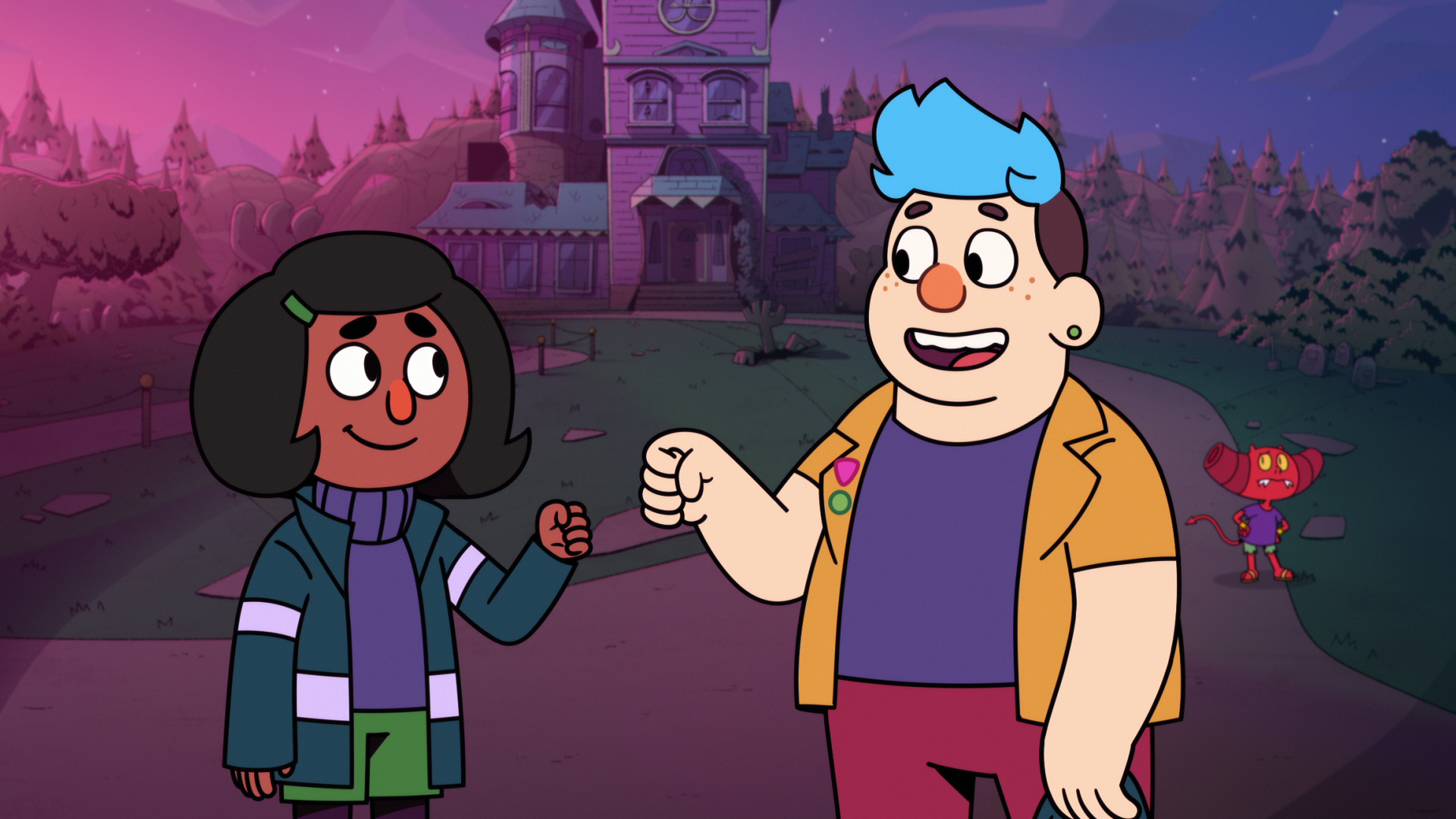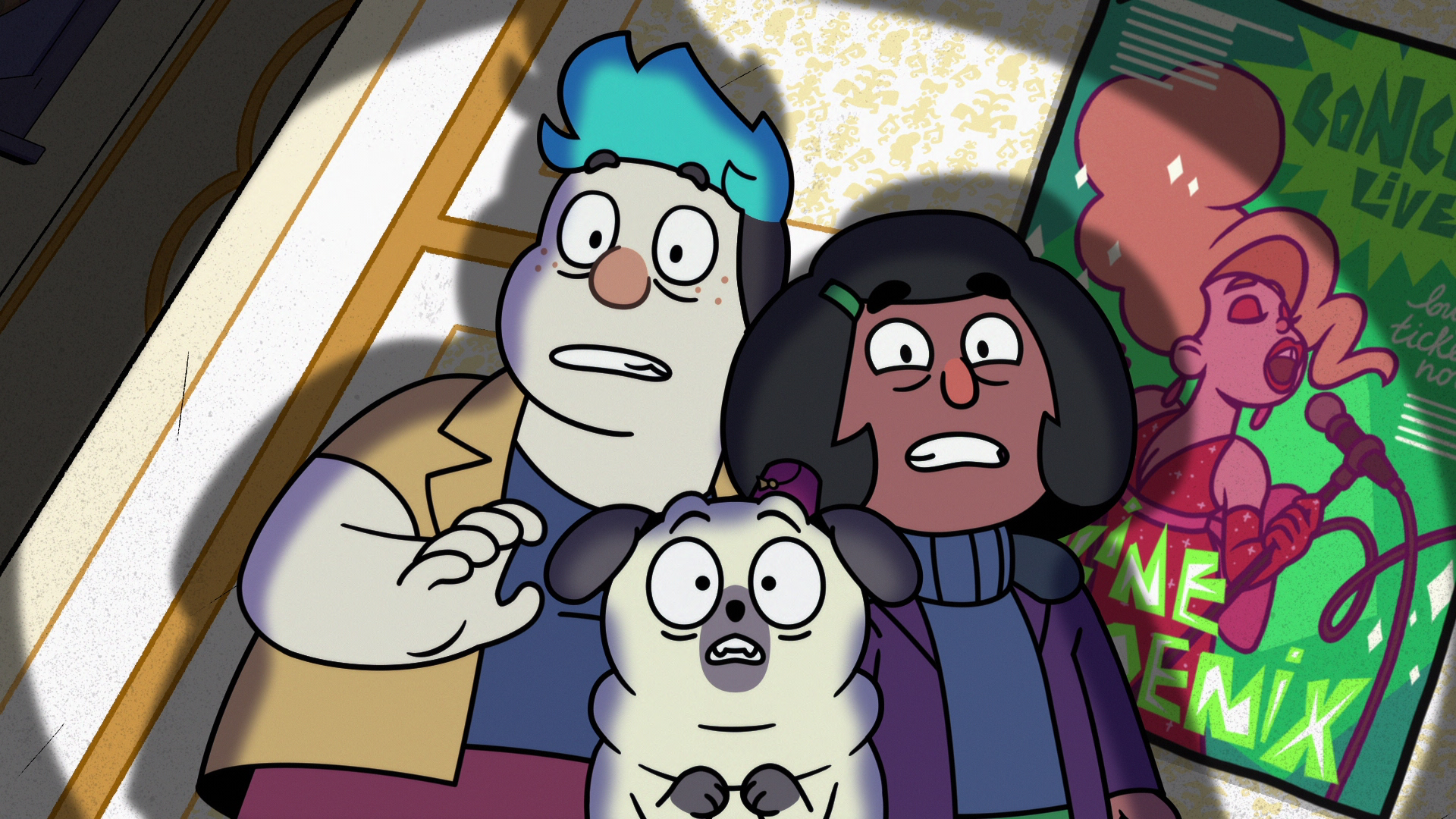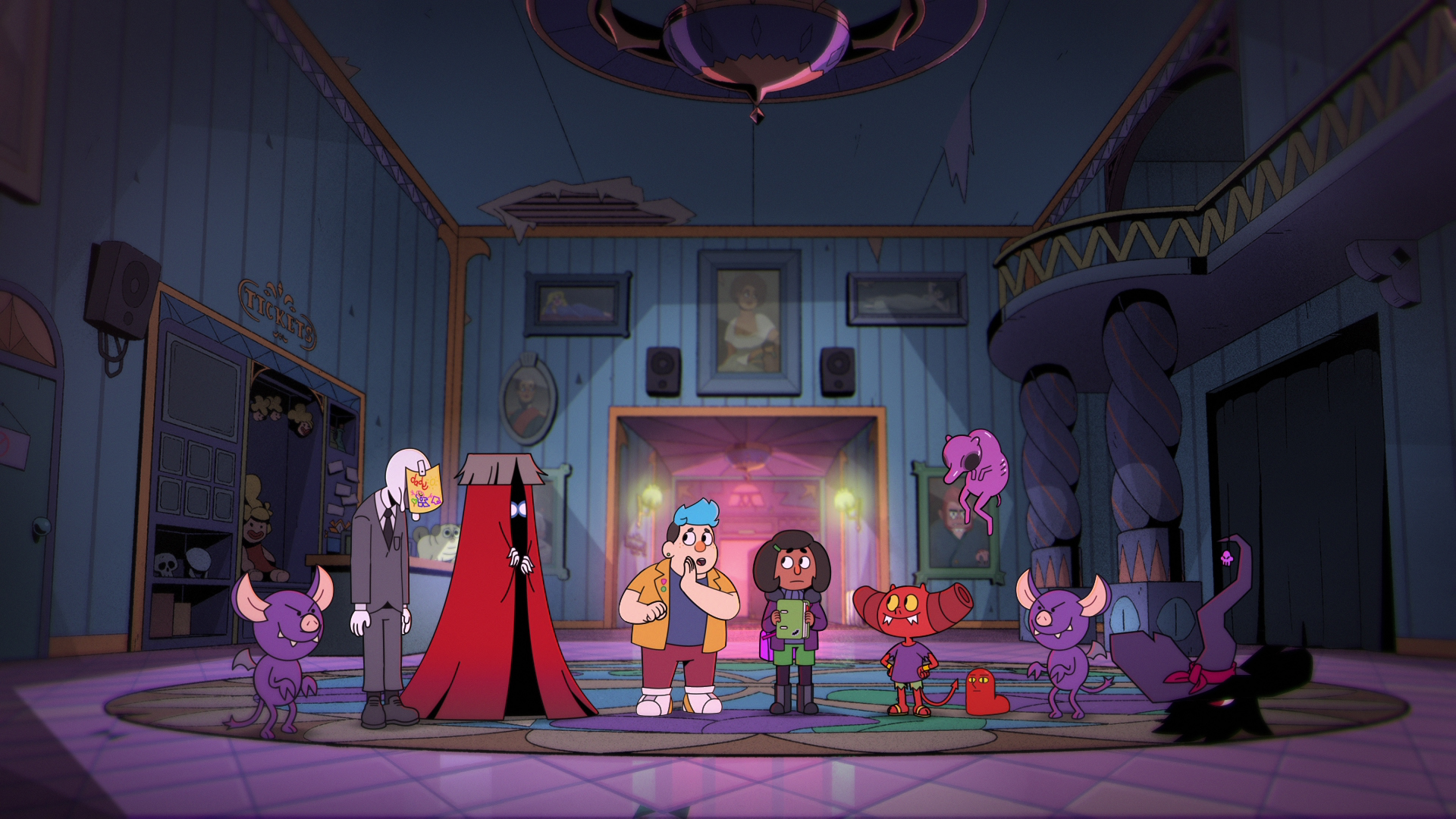
Dead End: Paranormal Park Season 1 has a lot of heart, but not much horror
“Keep it to yourself, darlin’,” is the golden rule at Phoenix Parks, the Dollywood-esque home of the titular Dead End attraction in the new Netflix animated series Dead End: Paranormal Park. The phrase perfectly captures how the show, based on Hamilton Steele’s graphic novel series DeadEndia, views the supernatural and literally demonic happenings around the park. While this leads to some solid moments of comic relief throughout the series, it will likely leave those looking for an experience like Gravity Falls or Over the Garden Wall a bit cold.
The first season of Dead End: Paranormal Park follows a young, Jewish, trans man named Barney (played by transgender Spider-Man: Far From Home actor Zach Barack) as he and his school lab partner, Indian-American Norma (played by Kody Kavitha), make their way to Phoenix Parks to apply for a job there. Barney wants to have his own income so he and his dog Pugsley can move into their own place, away from his family. Norma, meanwhile, is a super-fan of Pauline Phoenix (voiced by Miss Coco Peru), the actress/singer with huge blond hair that the park is themed after. The two are met by Courtney (voiced by Emily Osmett), a demon who lives in the Dead End house attraction and is looking to lure human hosts for her evil overlord.

To save Barney from possession, Pugsley takes the demonic bullet and becomes the demon king’s vessel. Norma and Barney spend the back half of the first episode trying to snap a photo of the possessed pug so they can capture the demon’s soul. They’re successful, but a fragment of the demon remains inside Pugsley, giving him access to some of the demon warlock’s magic power. The rest of the season is mostly about dealing with this aftermath, and taking on the main character’s personal issues.
When it comes to the latter, Dead End: Paranormal Park excels. Norma and Barney are fully fleshed out people who have their own respective strengths and weaknesses. Barney tends to be conflict-avoidant, and often runs away from the difficulties he faces. Norma, meanwhile, is basically a hostage of her own anxiety, but can easily deal with the wild events she’s faced with at the park. Watching the two learn about each other and build their own little found family with other employees from the park was genuinely heartwarming. Allowing a truly diverse set of teens feel each other out and have the opportunity to create their own bonds is one of Dead End’s major strengths. Barney’s journey with his family and his transness is also a key part of this show’s narrative, and the writing does an excellent job of tying those issues into why Barney is even there.

But, when it comes to the titular “paranormal” aspect of the show, things tend to fall flat. Though each episode does include some kind of supernatural or demonic hijinks, those aspects fade into the background because it doesn’t feel like anyone in the show is actually weirded out or even curious about what’s going on. It’s true that the park motto is: “keep it to yourself, darlin’,” but that seems to give the show an out to just not acknowledge any of its weirdness, which renders the whole thing rather mundane. This is disappointing because there’s plenty of eerie potential in a theme park, and the show does have a mystery at its core. But like another Netflix animated series, Disenchantment, the pacing leaves most of the stakes and discovery until the last few episodes of the season, which makes it hard to feel invested until that point.
Barney comes to the park seeking a safe haven from the turmoil he faces at home, but the show basically posits that this need for refuge makes Barney simply not care about any of the weirdness around him. When he decides to stay in Dead End, we see him cozy up in a coffin and offer a tiny one for Pugsley. The dog seems a bit leery, but Barney doesn’t bat an eye at their circumstances. While it may seem better than being around a transphobic grandmother, it struck me as odd that Barney takes to everything so calmly and doesn’t seem to have any pressing curiosity about what’s going on around him in the park. This continues throughout the season, which ultimately ends up feeling frustrating for a show that’s supposed to be in this genre of youth horror.

Whenever something strange happens, the goal is always to simply survive and put an end to it, rather than trying to figure out what’s actually to blame. The mysteries and weirdness of the park stay on the backburner for most of the show, really only coming into focus when Norma and Barney’s personal issues are relevant to them. Courtney, for example, spends the whole season trying to find a way back to the underworld because she was banished before the show started. None of the human characters express interest in trying to find out what Courtney did to be exiled in the first place, and she doesn’t even seem to know what happened. It’s not a situation where she’s keeping some dark secret from her newfound friends; towards the latter half of the season we get a small reveal that Courtney’s exile was instituted by forces outside of hell, which comes as a surprise to her.
While I was left with questions about Phoenix Parks and why it has a seemingly very intimate connection to literal hell, Dead End: Paranormal Park isn’t interested in answering them, or leaving breadcrumbs about the mystery to build into a second season. With this key aspect of paranormal fiction missing, most of this season feels a bit aimless, even as Norma and Barney’s journeys feel fleshed out and real.





